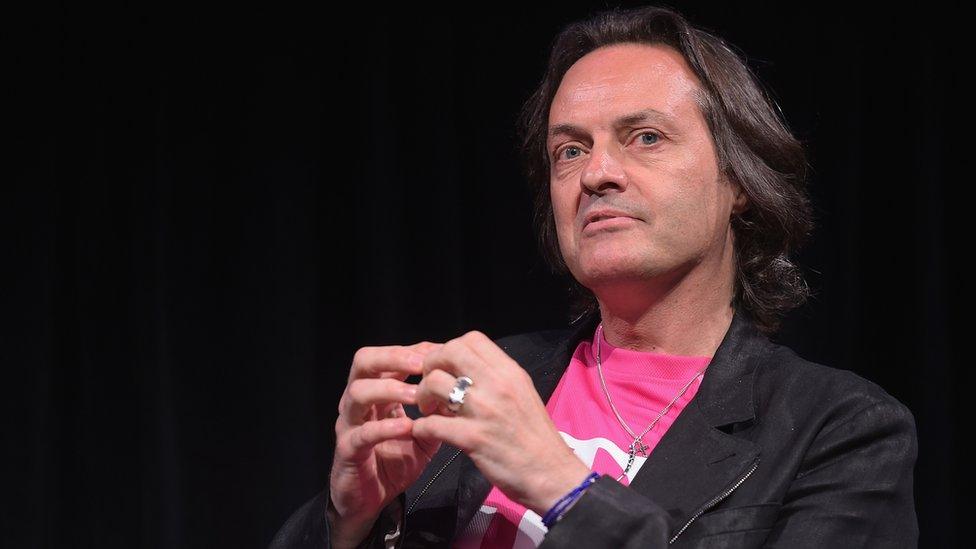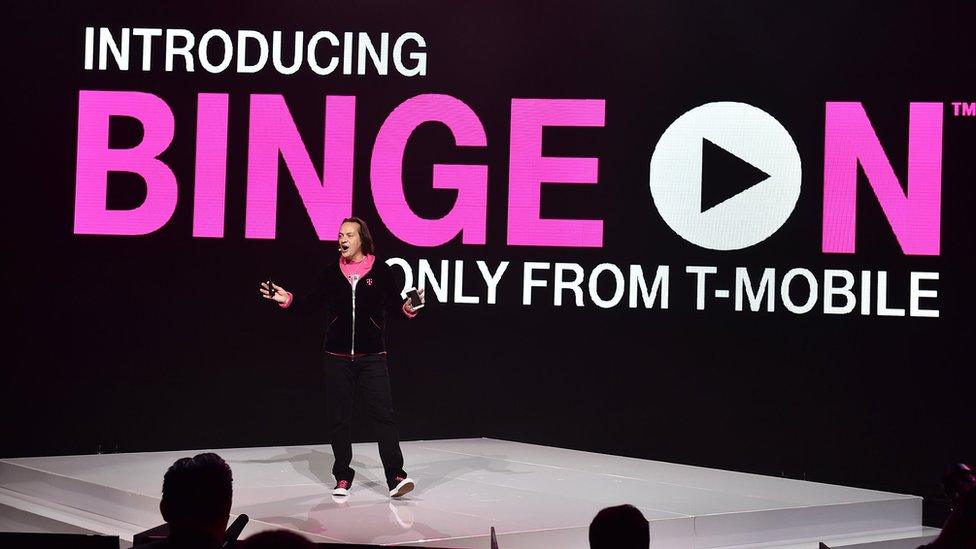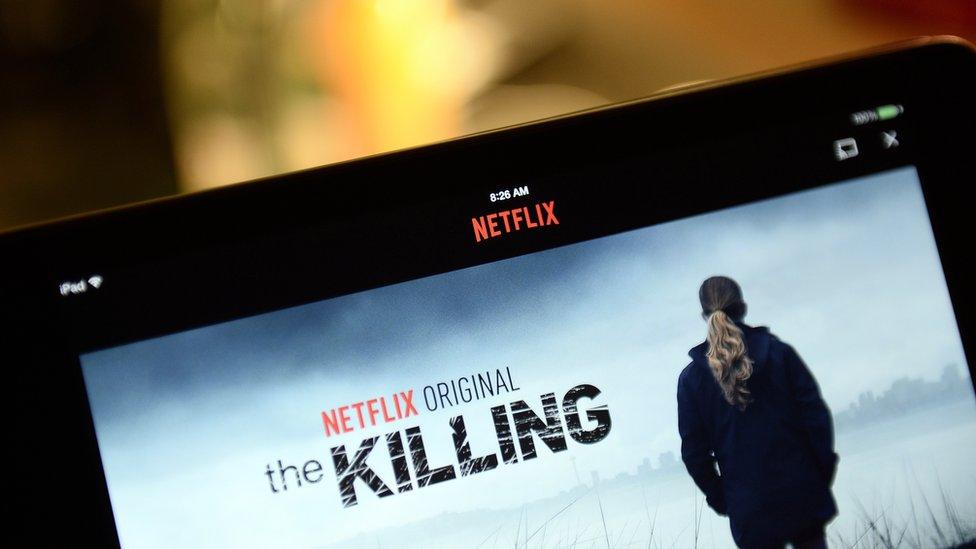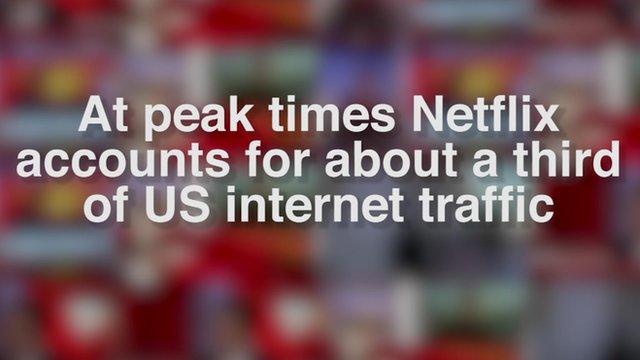T-Mobile apology for f-word outburst over Binge On
- Published
- comments

The chief executive of T-Mobile has apologised over remarks he made to privacy rights group the Electronic Frontier Foundation and others.
The EFF criticised the firm's new Binge On streaming feature, external, saying it was "throttling", meaning artificially slowing-down, download speeds.
In response, T-Mobile boss John Legere posted an expletive-filled video, external on Twitter, raging at the EFF's statement.
He referred to opponents of Binge On - which included Google - as "jerks", adding: "Who do they think they are?"
Other comments, using stronger language, were also made.
In an open letter posted on Monday, apologised for causing offense - but reiterated his rejection of the EFF's characterization of Binge On.
"[I] apologize for offending EFF and its supporters," he wrote.
"Just because we don't completely agree on all aspects of Binge On doesn't mean I don't see how they fight for consumers."

T-Mobile's Binge On promotion has become part of the net neutrality debate
However, he added: "By now you know that I am a vocal, animated and sometimes foul mouthed CEO.
"I don't filter myself, and you know that no one at T-Mobile filters me either (no, they don't even try). That means I will sometimes incite a bit of a 'social media riot', but I'm not going to apologize for that."
Binge On is a service offered to T-Mobile customers, advertised as a way to watch video from certain sources - such as Netflix - without using up any data allowance whatsoever.
Mr Legere described it as a way to let customers watch high-quality video without "stretching their data bucket".
As part of this, Binge On minimises the download size of videos being watch so they are "optimised" for mobile devices.
But the EFF described Binge On as a cover for simply slowing down video download speeds across the entire T-Mobile network, lightening the load on its network, but reducing the quality of video content for customers (although T-Mobile says, on a mobile screen, this drop is not noticeable).

Binge On allows T-Mobile customers to stream services like Netflix without using their data
The EFF ran several tests and discovered that T-Mobile was slowing speeds of every video on the internet, regardless of whether or not it was a service involved in the Binge On service, and even if customers had opted out of Binge On.
They argued this meant T-Mobile was acting against net neutrality, the principle that all traffic on the internet be treated equally, regardless of whether it was a video, audio file, or simply a webpage.
Supporters of net neutrality say it is vital to prevent a two-tiered internet where rich companies pay internet service providers to allow their content to be downloaded quicker than small companies who may not be able to pay.
The EFF has urged the US communications regulator to investigate.
But Mr Legere insisted the company was not acting against net neutrality.
"This is one of the reasons that Binge On is a VERY 'pro' net neutrality capability - you can turn it on and off in your MyTMobile account - whenever you want. Turn it on and off at will. Customers are in control. Not T-Mobile. Not content providers. Customers. At all times."
The EFF is calling for this feature to be something customers should have to choose to turn on, rather than actively seek to turn off.
Speaking about the open letter, a spokeswoman told the BBC: "We are grateful for the apology and appreciate Mr Legere recognising our work in fighting for the consumers.
"We too hope to have a discussion with T-Mobile regarding net neutrality and Binge On."
Follow Dave Lee on Twitter @DaveLeeBBC, external
- Published19 May 2015

- Published14 May 2014
